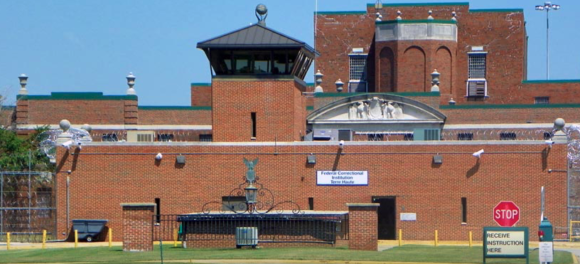A federal appellate court on Friday affirmed the conviction of an Indiana man who set fire to seven homes in a rural mobile home park over a nine-year period and collected more than $600,000 in insurance money.
A panel of the 7th Circuit of Appeals rejected arguments that a magistrate judge for the U.S. District Court had improperly admitted into evidence accusations that Michael Thomas had set six other fires that were not part of the insurance fraud scheme.
“We conclude the district court properly decided that six of the fires were part of Thomas’s scheme and not ‘other acts’ at all,” the 7th Circuit opinion says. “The district court also properly admitted evidence of another fire that, although too far removed in time to be part of the scheme, was evidence of Thomas’s modus operandi.”
Thomas lived with his wife, Jennifer, in the Born’s Trailer Park, a community of fewer than 100 mobile homes that occupies one square mile just outside of North Judson, Indiana. The couple’s home on Julia Drive was destroyed by a fire in September 2004.
Thomas has purchased insurance on the home less than three weeks earlier and had even bought a second policy covering the same property that took effect the day of the fire. The carrier sent the Thomases a check for $75,000. Prosecutors say Thomas later confided to a friend that he had asked a family member to set the blaze.
In November 2010, Thomas “pressured” his reluctant wife to buy insurance for a new mobile home and a garage on South 275 West that he and Jennifer owned with others, and also a policy to cover a separate home on South A Street owned by Jennifer and her mother. Ten days after the insurance policy was in place, Thomas and an associate set fire to both mobile homes. They also burned down two abandoned mobile homes in the Born’s community as a diversion, the court opinion says. The Thomas’ insurer paid $50,000 on the claim.
In December 2012, Thomas purchased a policy for another mobile home on South 275 West. The trailer was destroyed in a fire about a year later, just before the policy expired. The insurer paid $60,000.
In February 2013, Thomas renewed an insurance policy that covered the new mobile home that he and his wife owned on Julia Drive — on the same lot where the first fire had been set. By this time, he and Jennifer had separated.
Thomas told his wife in April 2013 “you better get out what you want that’s important to you.” He asked a friend to move a motorcycle that he had stored in the home. Hours later, a fire erupted. Firefighters extinguished the blaze and checked to ensure there were no smoldering “hot spots,” but the fire reignited after they left.
Thomas instructed his wife to go online and “max out” the number of items they could claim. Eventually, their insurer paid $426,227.31.
But this time, the fire attracted the attention of fraud investigators. In April 2018, a grand jury for the U.S. District Court in South Bend, Ind. issued an indictment charging Thomas with four counts of mail fraud.
A jury convicted Thomas. He was sentenced to seven and a half years in prison and ordered to pay $541,749.58 in restitution.
Federal prosecutors said that Thomas had cleverly hid his tracks. He enlisted a friend and his wife and children to concoct alibis and disguise the cause of the fires that were set.
“He attempted to deceive the fire department, fire investigators and insurance companies by making it appear that the fires were the result of electrical failure,” the U.S. Attorney’s office said in a sentencing memorandum. “He successfully avoided detection for years, allowing him to continue taking insurance proceeds.”
On appeal, Thomas contended that because the mail fraud scheme he was charged with was based only on the April 2013 fire, the magistrate judge had erred by admitting into evidence testimony about the other six fires. The admission of that evidence had unfairly prejudiced the jury against him.
The appellate panel said Thomas defined the scheme too narrowly. The district court had correctly concluded that of of the other fires were part of the scheme to defraud. While the 2004 fire was not included in charging papers, evidence about that blaze was appropriate because it shows how Thomas operated, the court opinion says.
Bureau of Prisons records show that Thomas, 43, is incarcerated at the Terre Haute Federal Correctional Institution. He is scheduled to be released on Feb. 11, 2026.
About the photo: The Terre Haute Federal Correctional Institution is shown.
Was this article valuable?
Here are more articles you may enjoy.


 Uber Jury Awards $8.5 Million Damages in Sexual Assault Case
Uber Jury Awards $8.5 Million Damages in Sexual Assault Case  Canceled FEMA Review Council Vote Leaves Flood Insurance Reforms in Limbo
Canceled FEMA Review Council Vote Leaves Flood Insurance Reforms in Limbo  Charges Dropped Against ‘Poster Boy’ Contractor Accused of Insurance Fraud
Charges Dropped Against ‘Poster Boy’ Contractor Accused of Insurance Fraud  UBS Top Executives to Appear at Senate Hearing on Credit Suisse Nazi Accounts
UBS Top Executives to Appear at Senate Hearing on Credit Suisse Nazi Accounts 